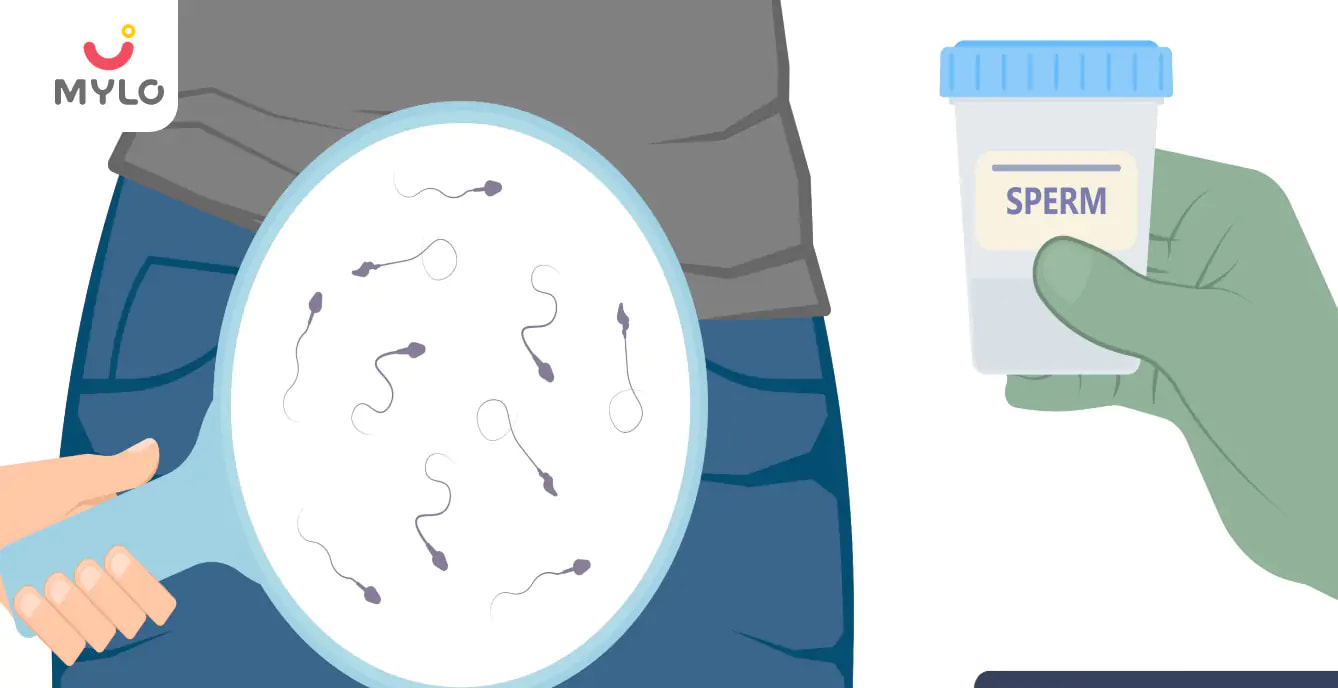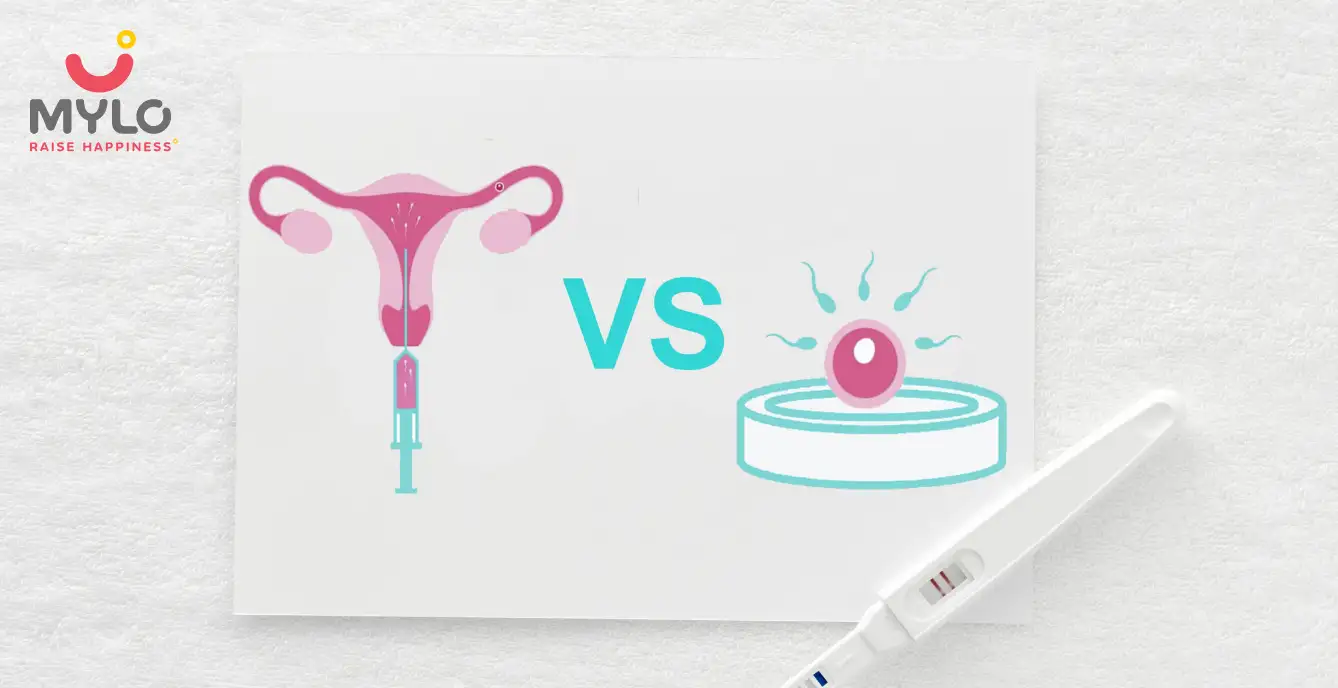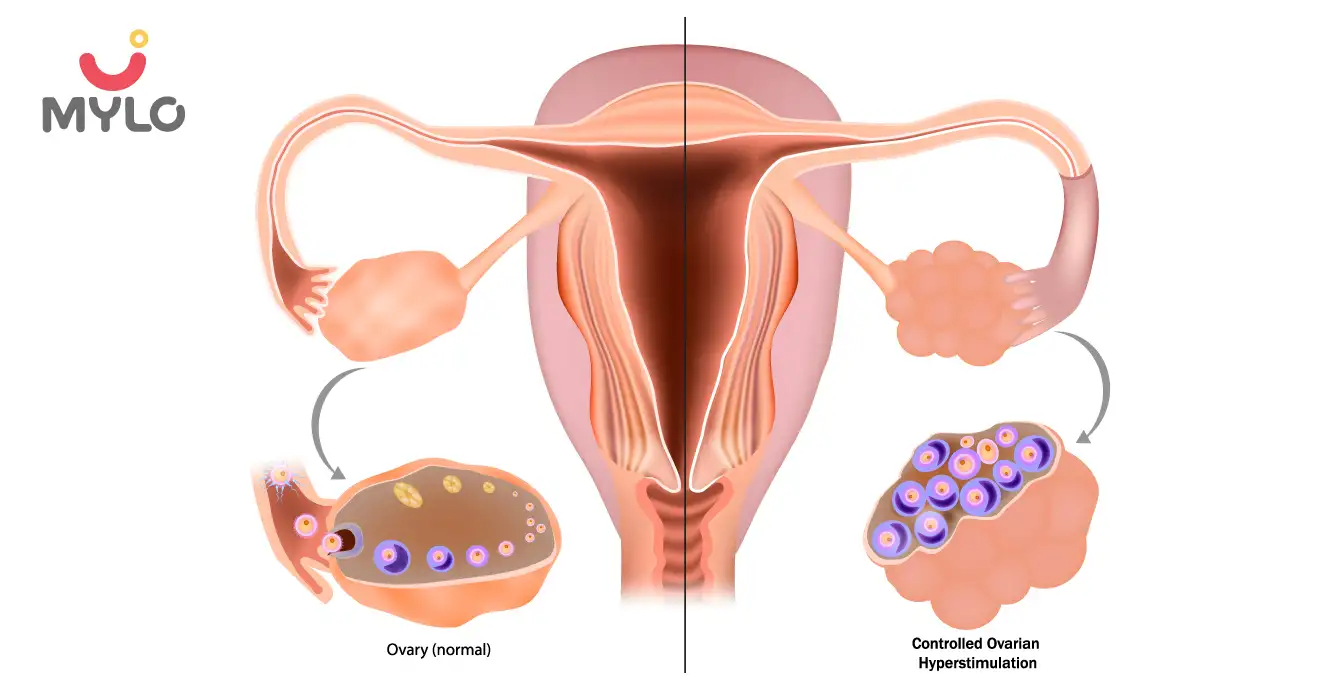Home

Male Infertility

Hypospermia: What Every Man with Low Semen Volume Should Know
In this Article

Male Infertility
Hypospermia: What Every Man with Low Semen Volume Should Know
Updated on 31 July 2023
After over a year of trying to conceive and with no successful results, Prateek and Swati finally mustered the courage to visit a fertility specialist. The doctor after a preliminary appointment recommended some diagnostic tests to the couple. The fertility tests weren’t the source of as much anxiety as the results were. Upon receiving the results, the doctor diagnosed that Prateek was suffering from hypospermia, which meant a lower-than-average semen volume.
After coming home from the clinic, Prateek and Swati began their extensive research to understand hypospermia meaning, its possible causes and how to overcome this roadblock in their path to parenthood. So, join the couple, as we navigate this sensitive but essential aspect of men's health together and strive to empower ourselves with the information needed to make informed decisions and lead healthier lives.
Hypospermia meaning
Hypospermia, also known as low semen volume, refers to a condition in which a man produces a lower amount of semen during ejaculation than what is considered normal. Semen volume is an essential factor in male fertility, as it contains sperm cells that are necessary for fertilization. When a man experiences hypospermia, it can have implications for his reproductive health and chances of fathering a child.
You may also like : Semen Analysis: A Comprehensive Look at Male Reproductive Health
What is the normal ejaculation volume?
The normal ejaculation volume varies from person to person, but on average, it ranges between 1.5 to 5 milliliters. A man's semen volume can be affected by various factors such as age, overall health, and sexual activity. It is important to note that low semen volume does not necessarily indicate infertility, but it may reduce the chances of conception.
How does hypospermia affect fertility?
Hypospermia can have an impact on male fertility. When the semen volume is low, there is a reduced number of sperm cells available for fertilization. Sperm cells are responsible for fertilizing the female egg, and a lower sperm count can decrease the likelihood of successful conception. However, it is important to remember that fertility is influenced by multiple factors, and lower than normal ejaculation volume alone does not guarantee infertility.
You may also like : Top 4 Kinds of Infertility Treatments to Cure Male Infertility
What are the signs and symptoms of hypospermia?
The primary symptom of hypospermia is a noticeable decrease in the volume of semen during ejaculation. However, it is important to distinguish between low semen count and other factors that can affect ejaculation, such as premature ejaculation or erectile dysfunction. Other signs and symptoms of hypospermia may include a decrease in sexual pleasure or a change in the consistency of semen. If you suspect you have hypospermia, it is advisable to consult with a healthcare professional for proper diagnosis and guidance.
What causes low semen volume?
There are several factors that can contribute to low ejaculation volume. Some common causes include:
1. Age:
As men age, their semen volume tends to decrease naturally.
2. Hormonal imbalances:
Hormonal imbalances, such as low testosterone levels, can affect semen production.
3. Lifestyle factors:
Certain lifestyle choices, such as excessive alcohol consumption, smoking, drug use, and a poor diet, can impact semen volume.
4. Medications:
Certain medications, such as those used to treat prostate issues or hypertension, may cause a decrease in semen volume.
5. Medical conditions:
Conditions like retrograde ejaculation, infections, or blockages in the reproductive system can lead to less than average semen volume.
How to treat hypospermia?
Hypospermia treatment depends on the underlying cause and the severity of the condition. In some cases, making lifestyle changes can help improve semen volume. Here are some strategies that may be beneficial:
Lifestyle changes to increase semen volume
-
Maintain a healthy diet: Consuming a balanced diet rich in nutrients, vitamins, and minerals can support optimal semen production.
-
Stay hydrated: Drinking an adequate amount of water helps maintain overall hydration, which can positively impact semen volume.
-
Exercise regularly: Regular physical activity can improve overall reproductive health and increase semen volume.
-
Avoid excessive alcohol and drug use: These substances can have a negative impact on semen production.
-
Manage stress: High levels of stress can affect hormonal balance, which may contribute to low semen volume.
Natural remedies for improving semen volume
-
Zinc supplementation: Zinc is an essential mineral for semen production, and supplementing with it may help increase semen volume.
-
Maca root: Maca root has been traditionally used to enhance fertility and may have a positive effect on semen volume.
-
Tribulus terrestris: This herb is believed to have aphrodisiac properties and may help improve semen volume.
-
Ashwagandha: Ashwagandha is an adaptogenic herb that may support reproductive health and increase semen volume.
Medical interventions for hypospermia
If lifestyle changes and natural remedies do not yield significant improvements, medical interventions may be necessary. These may include:
-
Hormone therapy: In cases where hormonal imbalances are causing hypospermia, hormone replacement therapy may be recommended.
-
Surgery: Surgical procedures may be required to address blockages or structural issues in the reproductive system.
-
Medications: Certain medications can help improve semen volume by addressing underlying causes.
FAQs
1. Can I get pregnant with hypospermia?
While less than normal ejaculation volume can decrease the chances of conception, it does not necessarily make pregnancy impossible. It is still possible for sperm cells to reach the egg and fertilize it, albeit with reduced odds.
2. How do you treat hypospermia in Ayurveda?
In Ayurveda, the traditional medicinal system of India, hypospermia is treated holistically. Ayurvedic treatments for hypospermia may involve a combination of dietary changes, herbal remedies, lifestyle modifications, and therapeutic procedures.
3. Can hypospermia be cured?
Hypospermia treatment outcomes depend on the underlying cause and the individual's response to treatment. In some cases, addressing the root cause and making appropriate lifestyle changes can lead to improvements in semen volume.
The Bottomline
Hypospermia can be a matter of concern for men who are trying to conceive. While it may reduce the chances of successful conception, it does not necessarily make pregnancy impossible. Understanding the causes, signs, and hypospermia treatment can help men make informed decisions about their reproductive health. If you suspect you have hypospermia, it is advisable to consult with a healthcare professional or fertility specialist to explore appropriate treatment options. Remember, each individual's situation is unique, and personalized guidance is crucial for optimal outcomes.
References
1. Roberts M, Jarvi K. (2009). Steps in the investigation and management of low semen volume in the infertile man. Can Urol Assoc J.
2. Robin G, Marcelli F, Mitchell V, Marchetti C, Lemaitre L, Dewailly D, Leroy-Billiard M, Rigot JM. (2008). Pourquoi et comment réaliser un bilan d'hypospermie ? [Why and how to assess hypospermia?]. Gynecol Obstet Fertil.



Written by
Madhavi Gupta
Dr. Madhavi Gupta is an accomplished Ayurvedic doctor specializing in Medical content writing with an experience of over 10 years.
Read MoreGet baby's diet chart, and growth tips

Related Articles
Related Questions
Hello frnds..still no pain...doctor said head fix nhi hua hai..bt vagina me pain hai aur back pain bhi... anyone having same issues??

Kon kon c chije aisi hai jo pregnancy mei gas acidity jalan karti hain... Koi btayega plz bcz mujhe aksar khane ke baad hi samagh aata hai ki is chij se gas acidity jalan ho gyi hai. Please share your knowledge

I am 13 week pregnancy. Anyone having Storione-xt tablet. It better to have morning or night ???

Hlo to be moms....i hv a query...in my 9.5 wk i feel body joint pain like in ankle, knee, wrist, shoulder, toes....pain intensity is high...i cnt sleep....what should i do pls help....cn i cosult my doc.

Influenza and boostrix injection kisiko laga hai kya 8 month pregnancy me and q lagta hai ye plz reply me

Related Topics
RECENTLY PUBLISHED ARTICLES
our most recent articles

Allergies
Eye Flu Alert: The Seasonal Epidemic You Need to Know About

Periods
How Many Days After IUI Should I Get My Period: Understanding the Timeline

Scans & Tests
An Expecting Mother's Guide to Glucose Tolerance Test (GTT)

In Vitro Fertilization (IVF)
Difference Between IUI and IVF: Which is Better for You?

In Vitro Fertilization (IVF)
Ovarian Stimulation: Understanding the Process and What to Expect

In Vitro Fertilization (IVF)
IVF Baby Delivery: Will You Have a C Section or Vaginal Delivery?
- How Many Injections for IVF Treatment Do You Really Need
- IUI Failure Symptoms & Reasons: Understanding Why IUI Fails & What to Do Next
- Lactose Intolerance in Babies: A Parent’s Guide to Identifying and Managing it
- TESA IVF: How This Procedure Can Help You Achieve Your Dream of Parenthood
- How Can You Encourage Sensory Play for Your Baby and What are Its Benefits?
- After How Many Weeks IVF Pregnancy Is Safe: Understanding The Ideal Timeline
- Exploring the Senses: 9 Incredible Benefits of Sensory Play for Your Child's Development
- The Ultimate Guide to Childproofing Your Home
- Start Their Love for Reading Early: The Best Books for Baby's First Library
- CMPA (Cow's Milk Protein Allergy): Identifying Symptoms and Understanding Treatment
- Birth Control Options While Breastfeeding: Balancing Parenthood and Contraception
- Period During Breastfeeding What Every New Mother Should Know
- Role of Stories and Rhymes in Your Baby’s Brain Development
- Intracytoplasmic Sperm Injection (ICSI) How It Can Help Treat Male Infertility


AWARDS AND RECOGNITION

Mylo wins Forbes D2C Disruptor award

Mylo wins The Economic Times Promising Brands 2022
AS SEEN IN
















- Mylo Care: Effective and science-backed personal care and wellness solutions for a joyful you.
- Mylo Baby: Science-backed, gentle and effective personal care & hygiene range for your little one.
- Mylo Community: Trusted and empathetic community of 10mn+ parents and experts.
Product Categories
baby carrier | baby soap | baby wipes | stretch marks cream | baby cream | baby shampoo | baby massage oil | baby hair oil | stretch marks oil | baby body wash | baby powder | baby lotion | diaper rash cream | newborn diapers | teether | baby kajal | baby diapers | cloth diapers |




